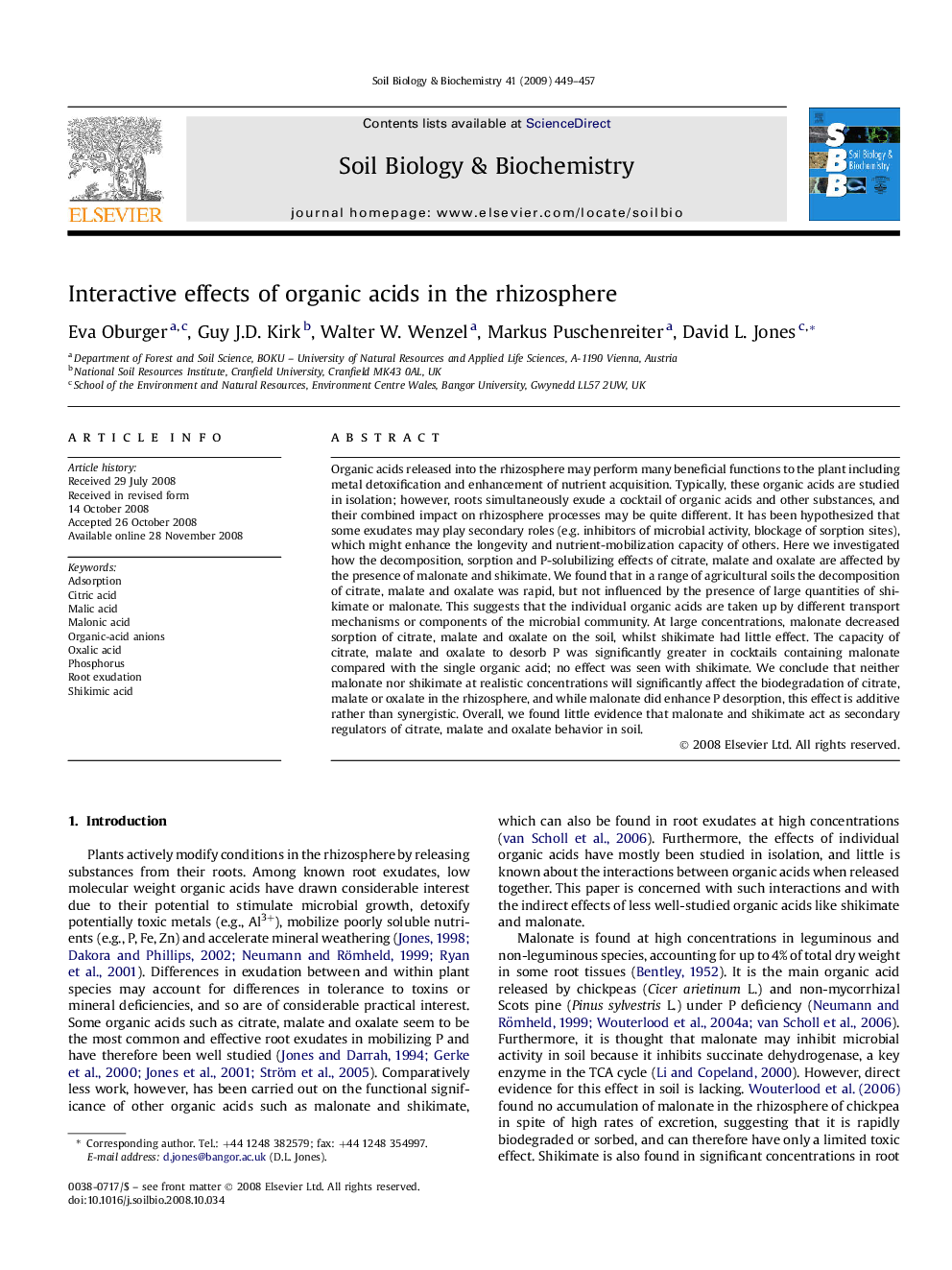| Article ID | Journal | Published Year | Pages | File Type |
|---|---|---|---|---|
| 2026714 | Soil Biology and Biochemistry | 2009 | 9 Pages |
Organic acids released into the rhizosphere may perform many beneficial functions to the plant including metal detoxification and enhancement of nutrient acquisition. Typically, these organic acids are studied in isolation; however, roots simultaneously exude a cocktail of organic acids and other substances, and their combined impact on rhizosphere processes may be quite different. It has been hypothesized that some exudates may play secondary roles (e.g. inhibitors of microbial activity, blockage of sorption sites), which might enhance the longevity and nutrient-mobilization capacity of others. Here we investigated how the decomposition, sorption and P-solubilizing effects of citrate, malate and oxalate are affected by the presence of malonate and shikimate. We found that in a range of agricultural soils the decomposition of citrate, malate and oxalate was rapid, but not influenced by the presence of large quantities of shikimate or malonate. This suggests that the individual organic acids are taken up by different transport mechanisms or components of the microbial community. At large concentrations, malonate decreased sorption of citrate, malate and oxalate on the soil, whilst shikimate had little effect. The capacity of citrate, malate and oxalate to desorb P was significantly greater in cocktails containing malonate compared with the single organic acid; no effect was seen with shikimate. We conclude that neither malonate nor shikimate at realistic concentrations will significantly affect the biodegradation of citrate, malate or oxalate in the rhizosphere, and while malonate did enhance P desorption, this effect is additive rather than synergistic. Overall, we found little evidence that malonate and shikimate act as secondary regulators of citrate, malate and oxalate behavior in soil.
